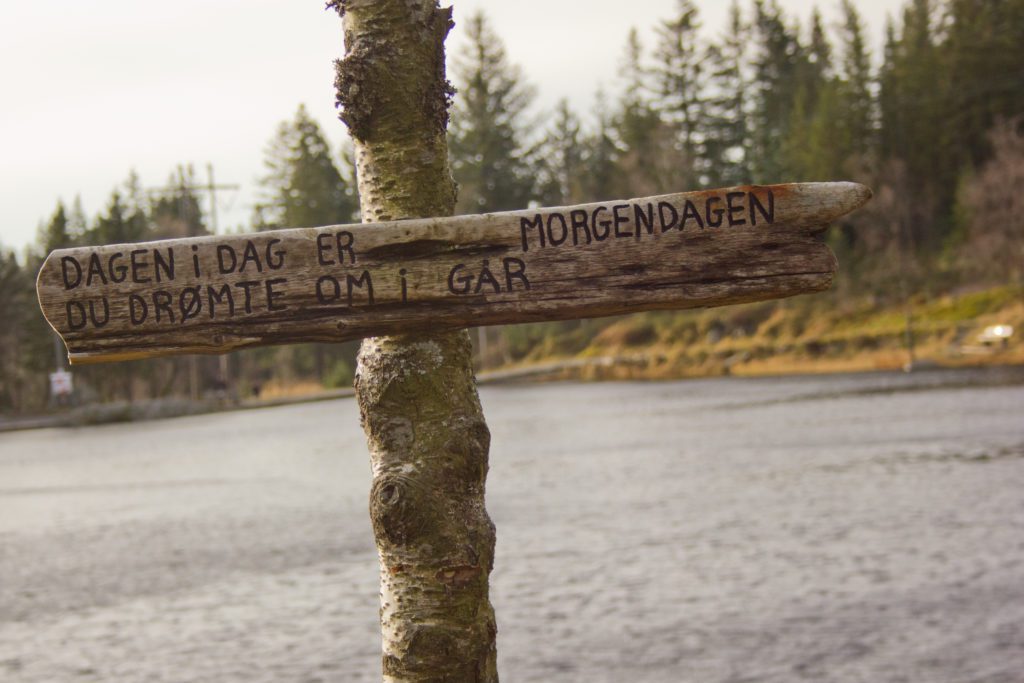No matter where you travel, being able to speak the local language is always a plus. It makes getting around easier, helps you make friends, and allows you to get to know the country on a completely different level. But learning a new language can be tough. In this post, I’ll share some tips on how to learn languages for travel so you can make the most of your next trip.
Besides my native language (Polish), I am fluent in English, German and Norwegian. I also know Russian on a communicative level (getting close to the point where I can have a little more meaningful conversation than just the casual talk about the weather). I understand quite a bit of Danish, Swedish, Czech and Slovak and a tiny bit of Dutch and Serbo-Croatian.
Why should you learn the local language before travelling?
Let’s start with why you should even bother to learn a new language. If you already why you can jump right into how to learn a new language for travel.
Learning the basics of a language is a sign of respect
We live in an English-dominated world. In many situations, English is enough to find your way around, especially if you travel to popular tourist destinations. But even if people in the country you visit speak English quite well, learning at least a few words in the local language is a sign of respect.
It shows that you make some effort to get to know the country, that you’re not putting yourself in a superior position, expecting everyone to speak your language. A simple thank you lub hello in the local language will give you a much more friendly reception.
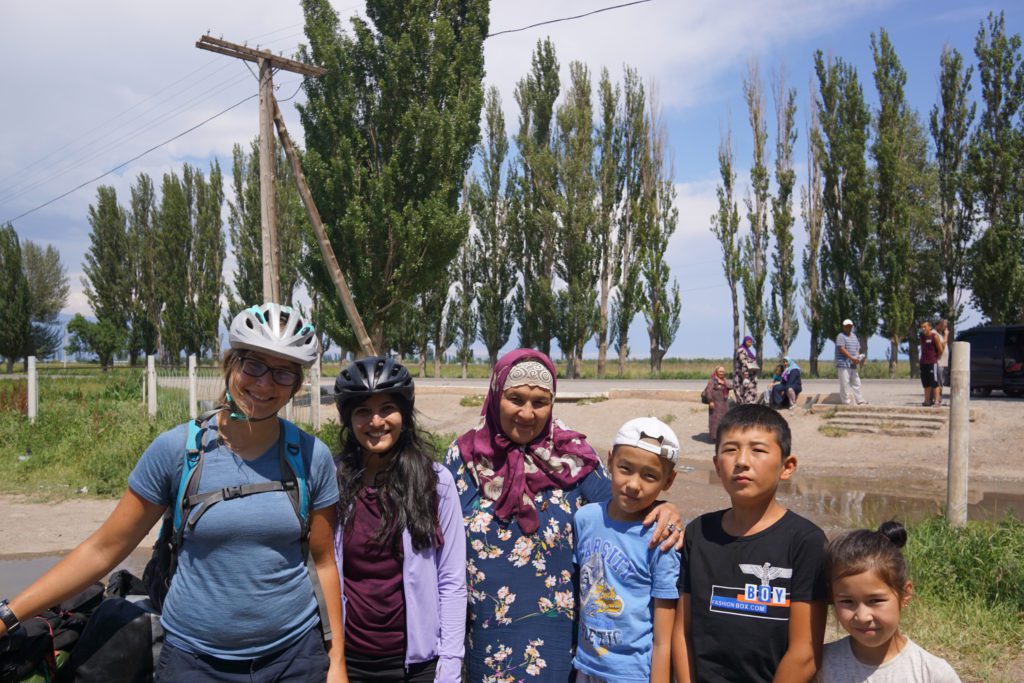
You will learn much more about the place and culture
When I travelled to Albania, I regretted that I didn’t know Albanian, and it isn’t similar to any languages I know. I was intrigued by the country’s modern history and wanted to learn more about it. Unfortunately, because of my lack of language skills, a lot of resources were out of reach.
When you speak the local language, you will hear fascinating stories about people’s lives and the place they live in. You will have a chance to really get to know your destination and not just look at it. A language breaks barriers and helps you connect with the place you visit and the people.
You never know when and where a language will be useful
It’s not like German is only handy if you travel to Germany, Austria and Switzerland. In Bosnia, I met people who used to be refugees in Germany in the 1990s and learned German there. It was much easier to communicate there for me than for people who only speak English. I used my German also in North Macedonia and Kosovo.
Learning Spanish is a necessity if you plan to travel to South America. French will help you not only in France but. You will use it in many African countries, like Morocco, Tunisia, and Congo.
Russian will help you communicate with people in the Caucasus (Georgia, Armenia, Azerbaijan), Central Asia (Kazakhstan, Kyrgyzstan, Tajikistan, Uzbekistan and Turkmenistan) and Eastern Europe (Belarus, Ukraine, and the Baltic States).
In Albania, many people know Italian because their satellite TV in the 90s often received signal from Italian TV.
The owner of one of the campsites in Romania used to work in the Netherlands. Thanks to my basic knowledge of Dutch, I could understand his thrilling story about the communist security services and his friend who was their collaborator.
Every language learned makes learning and understanding the next one easier
Languages form families and have an extensive network of connections with one another. If you know Spanish, it will be much easier to understand Portuguese, French or Italian.
Russian knowledge will make it much easier to learn the basics of other Slavic languages like Ukrainian, Serbo-Croatian, or even Polish.
Since I know English, German and Norwegian, understanding Dutch is much easier, although I never properly studied this language.
Those are maybe some of the self-evident examples. But there are many unexpected examples of words that sound similar in different languages that seem to be very distant from each other. For example, an elephant is almost the same in the Shona language spoken in Zimbabwe and Zambia (Nzhou) as in Japanese (Zhou). Arabic ard (the Earth) sounds oddly similar to German Erde or Dutch aarde.
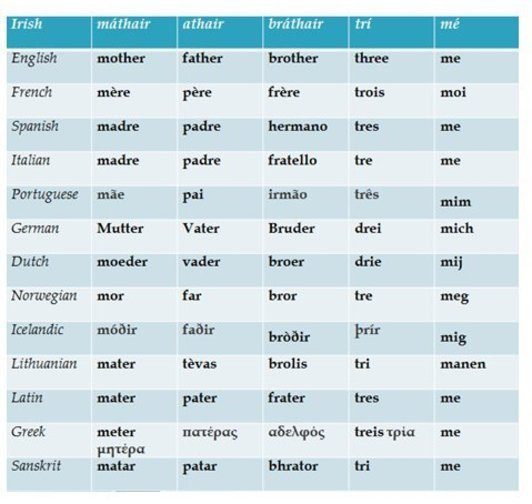
The best ways to learn a new language before travels
Immerse yourself in the language
One of the best ways to learn a new language is to immerse yourself in it. This is easy when you are already in your destination country, where you can talk to people, listen to the language on the streets and see it everywhere around you.
But how do you immerse yourself in a language before travelling?
When I started to learn German, I could only travel to Germany for about a short holiday, not even every year. It was in times when internet access was still a luxury (remember those loud routers and paying for every megabit of data?). So what did I do? I had penpals in German-speaking countries and was writing them letters every month. I read every book I could find and printed out plenty of articles. I watched German TV.
Today, resources for language learning are much more accessible. You can find endless content in any language you want. Google popular YouTubers from the countries you plan to travel to and watch their videos.
Listen to radio stations in other languages while you’re making dinner or cleaning. There is a great website where you can choose one of the local stations while taking a virtual ride through the streets of Cape Town, Istanbul, Tijuana and other cities.
Don’t worry that you don’t understand a lot – at least you’re getting used to the melody of the language.
Watch foreign TV news, for example, on tvchannels4all. Look up TV shows and movies in the language you want to master. Before my final high-school exam in English, I spent hours watching House MD, which broadened my medical vocabulary. Turn the subtitles on, especially if you are a beginner.
Try to think in a foreign language
Imagine you are already abroad before leaving your house. Try to call the objects from your daily life in a foreign language. When going shopping, translate the dialogue with the salesperson in your head. If you stumble upon unfamiliar words, note them and check whenever you have time.
Practice simplifying things in a way that allows you to omit your vocabulary gaps. Can’t remember the word for a kettle? Say that thing you use to boil water etc.
Take a language class online
The internet has made learning so much easier and more accessible. In the old, offline times, finding a language tutor was much more challenging, especially if you lived in a small town or wanted to learn a more exotic language.
Today, a class with an experienced Farsi, Finnish or Swahili tutor is just one click away! It allows me to keep studying Russian even when I am travelling. I simply connect with my teacher on Skype every Wednesday morning, no matter where I am.
There are many online platforms where you can find language tutors. The most popular one is definitely preply.com, where I myself am teaching Norwegian and taking conversations in Russian. Another one worth checking out is verbalplanet.com. The prices start from less than 5 euros per hour, and you don’t need to make a long-term commitment if you only want to learn the basics.
Do I need to have a teacher to learn a language?
While it’s possible to learn a language on your own, having a tutor will help you avoid building incorrect habits by correcting your pronunciation and grammar. I am not saying the goal of learning a foreign language is making no mistakes, but if you make too many, people won’t understand what you say. That’s why I recommend having some classes with a good teacher, at least at the beginning.
Conversations will also help you break the barrier when learning a new language.
Best apps for language learning
Duolingo
Many apps can help you learn a new language. One of my favourite ones is Duolingo. Can you become fluent in a language learning just from Duolingo? Certainly not, but it helps you learn some words and expressions as effortlessly as if you were just scrolling through social media or playing a game.
Duolingo is a fantastic app for beginners and will definitely support your lessons in the classroom. What I like about it is that it helps you memorise whole phrases and not just words. The cons? Sometimes the app creates ridiculous expressions that have nothing to do with real life.
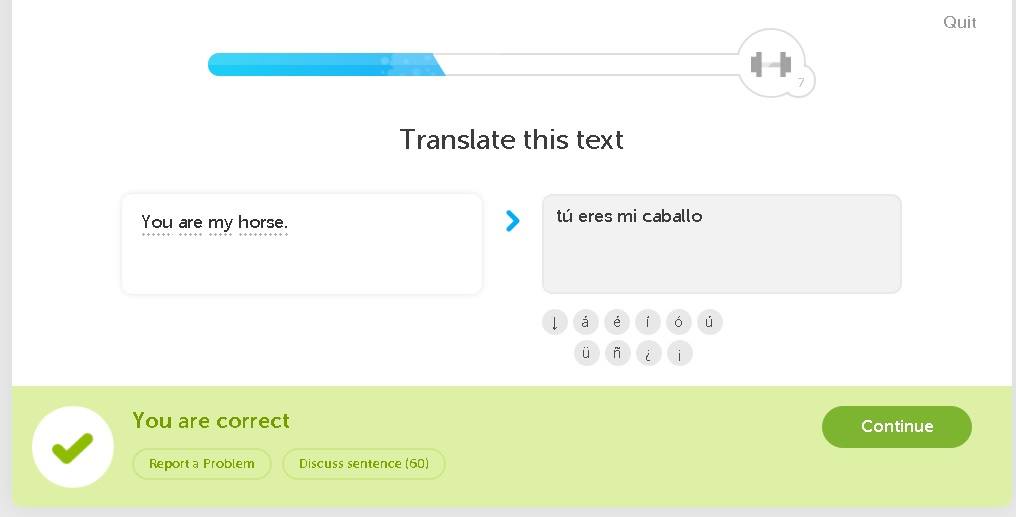
The app is free. You can learn 36 languages there, for example, French, Russian, German, Spanish, Indonesian, Vietnamese and Chinese.
Babbel
Another app for language learning is Babbel. This one is paid (from 4,95 EUR/month), and it makes learning fun and effective. The exercises are structured]to help you notice the patterns in the language and make sense of it instead of just memorising. There are fewer languages available in Duolingo, but Babbel seems more effective for learning grammar and understanding the language.
HelloTalk
So you’ve mastered the basics of a new language, and now you’d like to practice it more actively? If you are looking for a conversation partner before you travel to a country, HelloTalk is the place to go. It allows you to chat, send voice messages and video call with native speakers of more than 150 languages.
Best ways to learn and practice languages while travelling
Once you have learned the basics at home, you will have an excellent opportunity to bring your skills to the next level while you travel. Here are the ways to make the most out of your abroad stay.
Socialise with locals
If you stay in hostels and only socialise with other travellers, you will likely just practise your English. If you want to learn other languages and get to know the culture of the place you visit, forget the backpacker’s bubble and meet the locals.
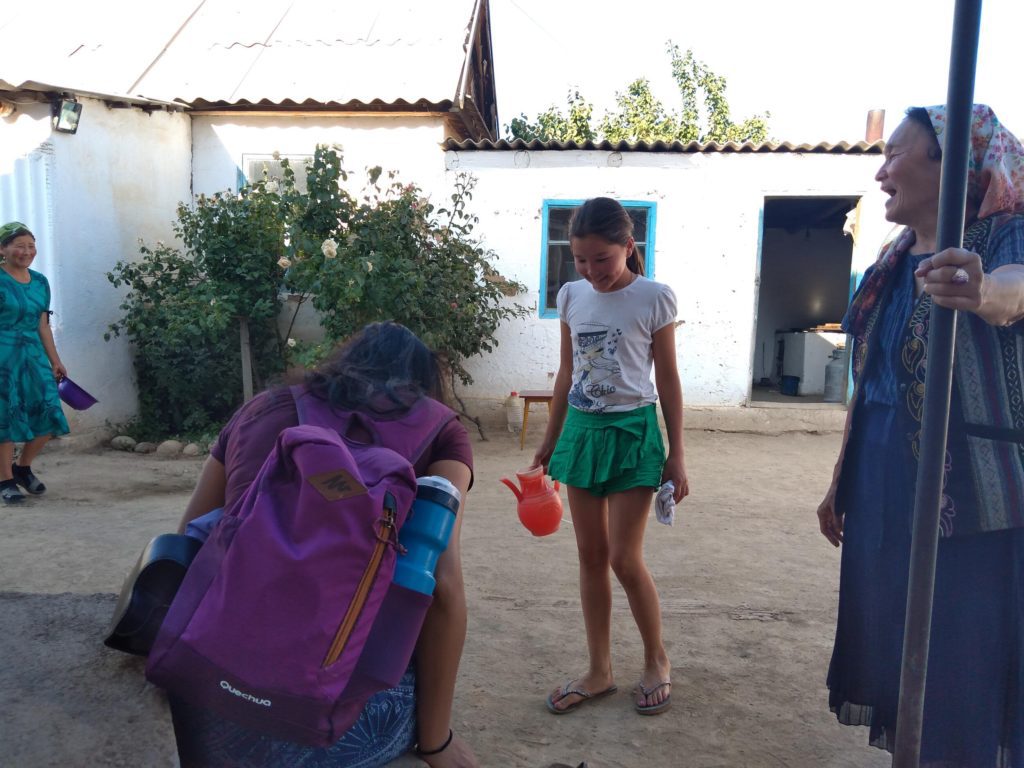
You can do it by using CouchSurfing (if you don’t want to stay with locals, you can also just use the Hangouts function and meet up for a coffee or a walk).
An even better option to immerse yourself in the culture and the language is volunteering, for example, through WorkAway. Bonus: you will also get free accommodation and food and learn new skills!
Don’t worry about mistakes
In this super cool TEDx talk, Marianna Pascal says we should treat learning a new language like playing a video game, not the piano. When you play the piano, you attempt to hit every tone right and avoid making mistakes at all costs. Playing video games is more of a hit-and-miss – it’s not about being perfect but about making it to the end of the game.
That’s how you should see speaking a foreign language. Nobody cares if you make a mistake, as long as you bring your message along. The native speakers will most likely be impressed that you make an effort to speak their language, and even if you do some oopsies, at least you’ll give them a reason to laugh.
Use every opportunity
Even if the waiter in a restaurant speaks English, try to order food in the native language. If people switch to English anyway (Norwegians always do that, as soon as they notice you’re a foreigner), tell them you want to practice the language.
Look at labels in the grocery store and the banners and road signs around – you will remember new words much faster if you can connect them with visuals and places.
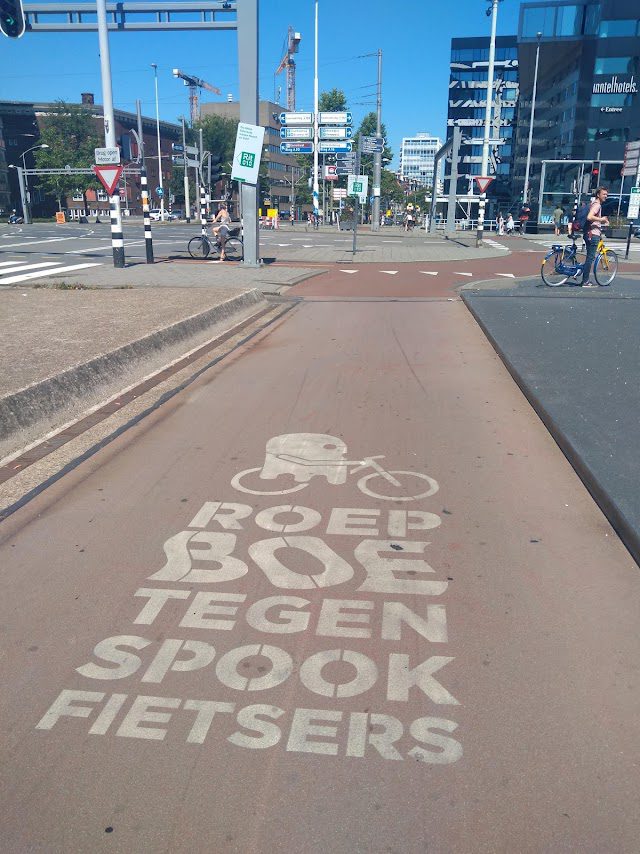
Get some help from Google Translate and DeepL
If you get stuck during the conversation, grab your phone and use Google Translate. If you travel to remote areas, download the language you will use. It’s not always 100 % correct, but it should help you with the simple phrases.
A better alternative to Google Translate is an AI tool called DeepL. The translations are much more accurate. The only downside of DeepL is that it works with fewer languages. Currently, DeepL translates from and to Bulgarian, Chinese (simplified), Czech, Danish, Estonian, Finnish, French, Greek, Spanish, Indonesian, Japanese, Lithuanian, Latvian, Dutch, German, Polish, Portuguese, Russian, Romanian, Slovak, Slovenian, Swedish, Turkish, Ukrainian, Hungarian, and Italian.
Get a pocket phrasebook
The good old-school pocket phrasebook is definitely more correct than Google Translate. Having one with you will also keep you occupied on a plane or a bus. For some reason, I find learning from analogue materials more effective than from the screen. Phrasebooks have all the essential everyday expressions in one place, and they are easy to use.
Some of the best phrasebooks are the ones published by Berlitz i Lonely Planet.
Do you have any tips on how to learn languages for travel? Share them in the comments!
